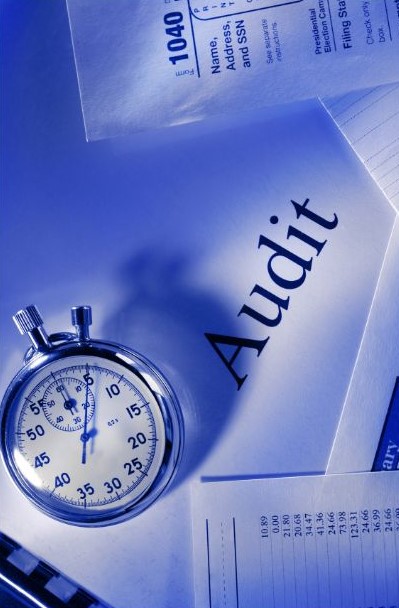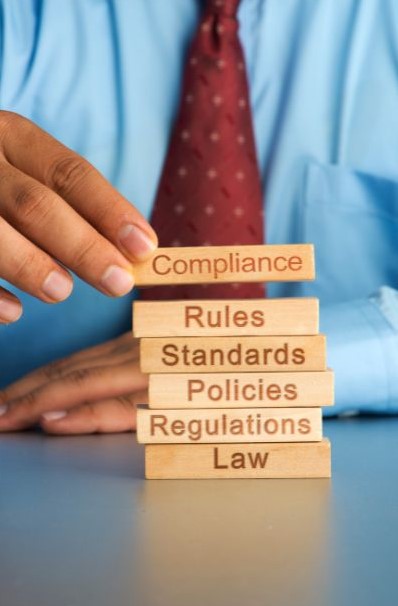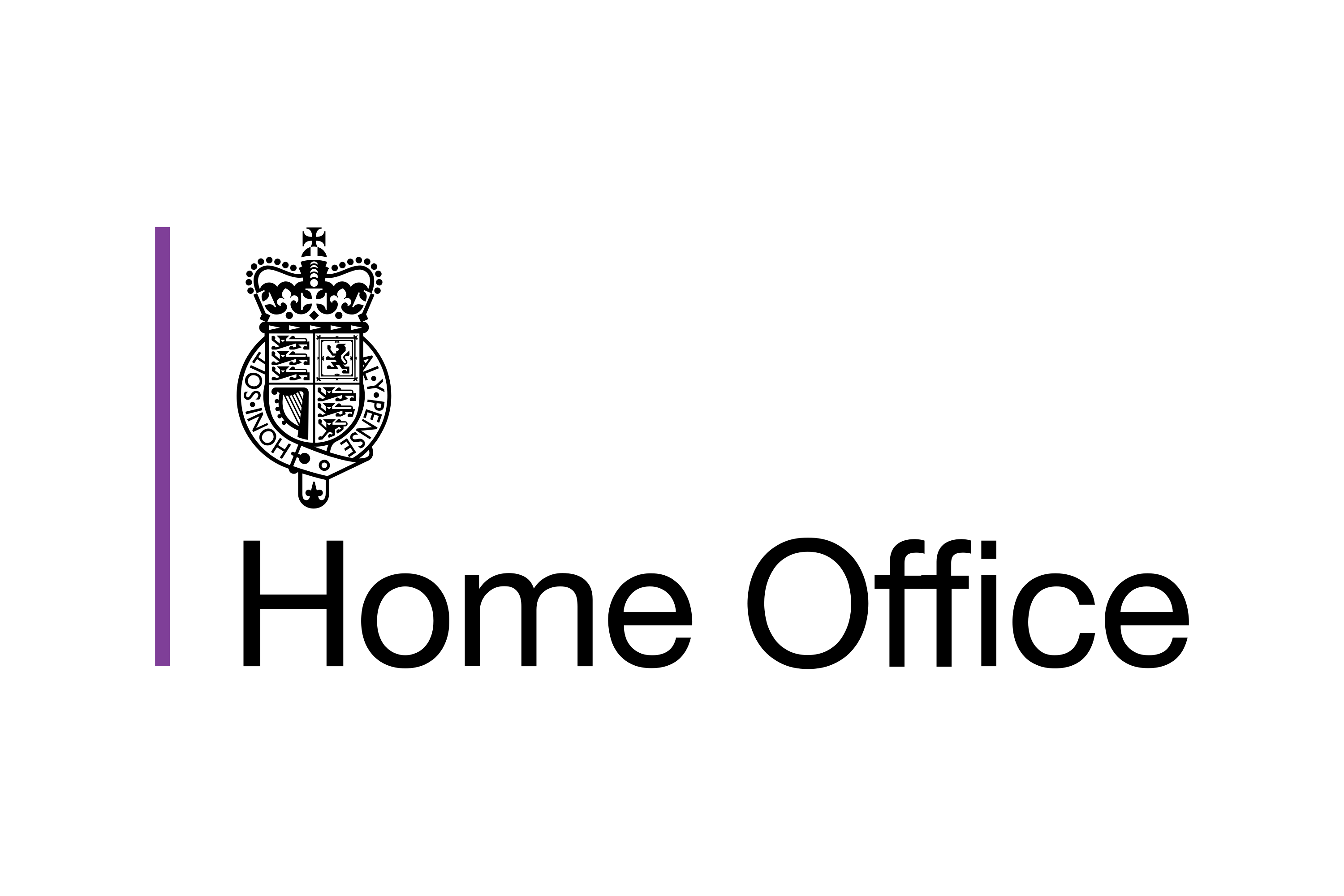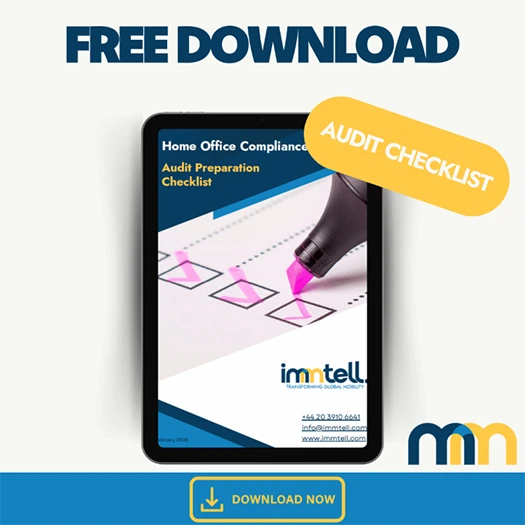What Happens During a Home Office Compliance Audit?
What to expect during a Home Office Compliance Audit

If you hold a sponsor licence to employ overseas workers, you’re agreeing to meet strict standards set by the Home Office. These aren’t just technical rules—they’re legal duties.
And sooner or later, many Home Office sponsorship licence holders will be audited.
Whether announced or unannounced, an audit can happen before your licence is granted, during the life of your licence, or as part of a renewal application. And if you're not ready, the consequences can be serious.
In this article, we’ll explain what actually happens during a Home Office compliance audit, the most common pitfalls, and how to prepare confidently.
Why Are Home Office Audits Becoming More Common?
Over the past year, the government has stepped up sponsor enforcement efforts. The increase in skilled worker salaries and new instructions issued to caseworkers in April 2024 has made the system more complex, yet expectations for employers have never been higher.
The audit programme is designed to ensure:
- You’re fulfilling all of your sponsor duties
- Sponsored workers meet the visa requirements
- Your HR and recruitment processes are compliant
- You’re not abusing or misusing the immigration system
Home Office visits are being targeted at:
- Newly registered businesses with a limited history of trading
- Businesses with sponsored workers in lower-paid roles
- Those expanding quickly or recently obtaining a licence
- Licence holders with inconsistent SMS activity or reporting
What Triggers a Home Office Compliance Audit?
An audit may be:
- Pre-licence – to check you're set up correctly before being approved
- Post-licence – randomly, or triggered by certain activities
- In response to a report – e.g. a complaint, data mismatch, or internal referral
- Renewal-related – particularly if you haven’t been audited during the current licence term
Triggers may include:
- Assigning a high volume of CoS in a short time
- Sponsored workers leaving soon after arrival
- Failure to report key events in time
- Inconsistencies between CoS and HMRC data
- Anonymous reports or whistleblowing
- Expanding into a new location or business line
You may get notice of a visit, or the Home Office may simply arrive unannounced.

What the Home Office May Check During an Audit
There are always some differences between every audit however they typically cover the same themes. Here’s what you can normally expect during the audit itself.
1. Documentation and File Review
- Sponsored worker files (passport, BRP, visa, CoS copy, pay records, etc.)
- Right to work checks (for all staff, not just sponsored workers)
- Employment contracts and job descriptions
- Absence and attendance records
- Recruitment evidence and interview notes
- Payroll records and proof of salary payments
The officer will assess whether the documents are complete, accessible, and reflect compliance with the rules.
2. Interviews
- They may speak with your Authorising Officer, Level 1 User, or anyone involved in HR or onboarding
- They may also interview sponsored workers to verify they’re in the right role, receiving the correct pay, and not subject to unusual working conditions
Interview questions may include:
- How do you track visa expiry dates?
- Who’s responsible for reporting changes?
- How do you ensure salaries match the CoS?
- Can you walk me through your onboarding process?
3. System Checks
They’ll want to see how your processes work in practice:
- How the Sponsor Management System is accessed and updated
- How right to work checks are stored and monitored
- Whether visa renewals are tracked internally
- Whether you’re following Appendix D record-keeping rules
What Happens After the Home Office Compliance Audit?
Following the audit, the Home Office will issue one of several outcomes:
| Outcome | What it Means |
|---|---|
| Rating Maintained or Granted | You’re compliant. No action needed. |
| B-Rating or Action Plan Issued | You can keep your licence but must fix issues and report back. |
| Suspension | Your licence is suspended during investigation; you may not assign new CoS. |
| Revocation | Your licence is revoked; all sponsored workers' visas are curtailed. |
You won’t always receive feedback straight away. In some cases, findings are issued weeks after the visit.
Most Common Audit Fails We See
Based on mock audits and real-case responses, these are the issues that most often catch employers out:
- Outdated or missing Key Personnel records
- Workers doing jobs that don’t match the CoS or occupation code
- No absence monitoring or reporting system
- Salary changes not reported (when relevant)
- Inconsistent right to work records (not keeping up with requirement changes)
- Poor internal training on sponsor responsibilities
In many cases, the business wasn’t deliberately non-compliant—they just didn’t know the detail required or didn’t realise internal changes needed to be reported.

How to Prepare for an Audit Before It Happens
Here’s what we recommend:
- Run a mock audit at least once per year
- Audit your sponsored worker files every 6 months
- Review and update your key personnel quarterly
- Cross-check CoS details against current duties and pay
- Use a central system to monitor visa expiry dates and absences
- Train HR and PeopleOps staff on sponsor duties, reporting, and SMS use
And if you’re not sure where to start?
Book a Discovery Call or Mock Audit
We offer:
- One-off mock compliance audits
- Our Audit-Ready Authority Blueprint (a premium full-day package with a mock audit, training, report and fixes)
- Our Compliance Confidence Compass (a lighter remote package including healthcheck, risk report and training)
👉 Book a Discovery Call
Let’s make sure your licence is in good standing—before the Home Office comes knocking.


Confident your sponsor licence would stand up to scrutiny?
If there’s any doubt - or you simply want assurance that everything’s on track—we’re here to help.
If there’s any doubt - or you simply want assurance that everything’s on track—we’re here to help.









